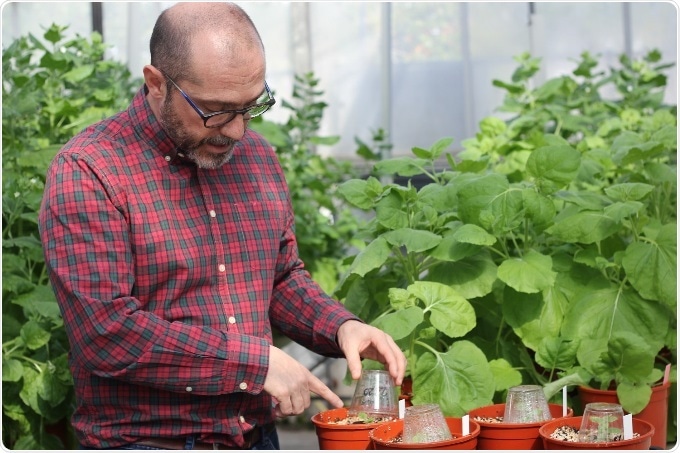At present, the Nicotiana benthamiana plant is being used as a bio-factory for various experimental vaccines against SARS-COV-2.

Image Credit: Ruvid.
An international team of researchers from the Institute of Plant Molecular and Cellular Biology (IBMCP), the mixed center of the Spanish National Research Council (CSIC), and Valencia’s Polytechnic University (UPV), has made the genome sequence of Nicotiana benthamiana available to organism researchers, both private and public, whoever is in need.
The aim of this initiative is to help combat COVID-19, and it is led by the Technological University of Queensland. The initiative is part of the NEWCOTIANA project, supported by the European Union by way of the Framework Programme H2020, coordinated by Diego Orzáez, a CSIC researcher.
Since the Spanish Flu of 1918, the SARS-COV-2 virus has brought about the worst pandemic. At present, several public and private research teams have been developing vaccines to forge combat against the pandemic.
A crucial challenge they face is to find ways to quickly and cost-effectively produce these vaccines in large amounts.
One solution is to use plants as bio-factories, a field also called molecular farming. Particularly, the genes using which the vaccine is produced can be transferred fast and temporarily to Nicotiana benthamiana plants.
The bio-factory plants are extensively grown using simple and safe farming methods, which would enable achieving production scale.
Nicotiana benthamiana is a plant closely linked to tobacco, that has been widely used to produce a large number of bio-pharmaceutical products, such as well-known antibody mix Zmapp, used to treat Ebola. Several companies currently use them as a platform to produce experimental vaccines against COVID-19.”
Diego Orzáez, CSIC Researcher, Institute of Plant Molecular and Cellular Biology
Orzáez is also the coordinator of the NEWCOTIANA project.
Orzáez added, “As researchers of the NEWCOTIANA project, we modify the genes of this pant to improve its ability to produce large amounts of more efficient bio-medicines. To do so, we need to know the genome of Nicotiana benthamiana in detail. Faced with the crisis of COVID-19, the groups involved in sequencing the plant’s genome have decided to immediately share our findings with other researchers, as well as with companies that develop vaccines and diagnostic reactants against COVID-19.”
Financially supported by the European Union, the NEWCOTIANA project involves using gene modification with Nicotiana benthamiana as a tool to synthesize useful bio-pharmaceutical products.
When we started the project two years ago, SARS-COV-2 was not on the radar; however, since the beginning of the pandemic, several project teams have started working on the production of useful bio-pharmaceutical products against the pandemic, from reactants to establish fast immunological trials, to molecules that can be used in a programme of mass vaccinations. We hope this speeds up the discovery of new bio-pharmaceutical products and, ultimately, contributes to fight against the current and future epidemics.”
Diego Orzáez, CSIC Researcher, Institute of Plant Molecular and Cellular Biology